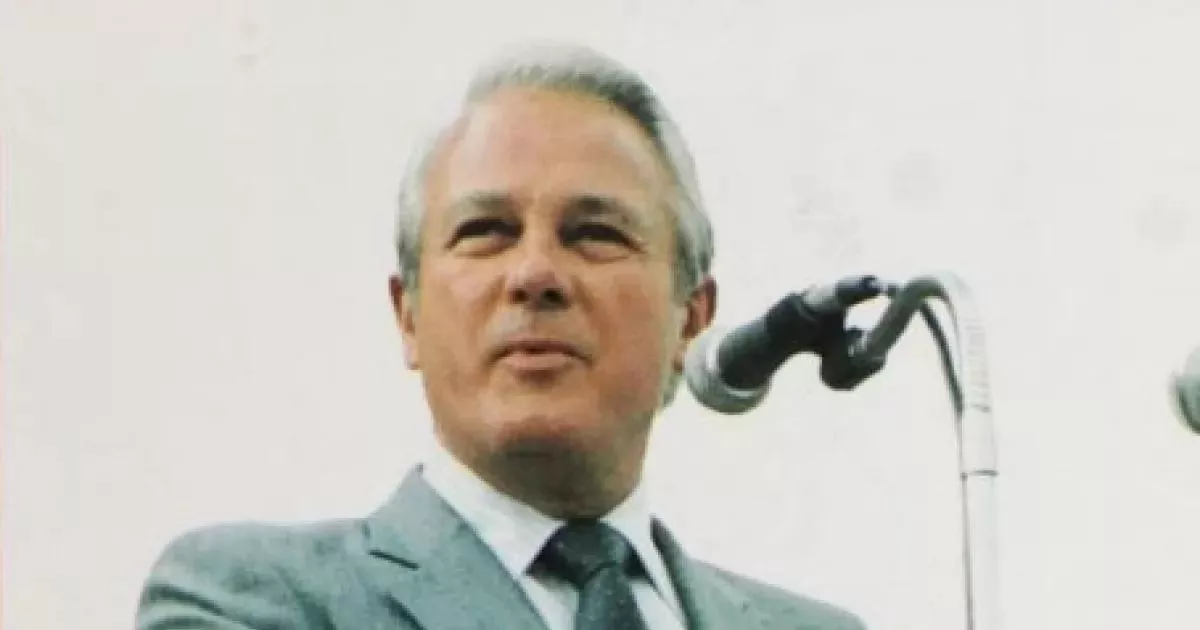"Edwin Washington Edwards was an American politician affiliated with the Democratic Party. He represented Louisiana's 7th congressional district in the U.S. House of Representatives from 1965 to 1972. Notably, he also served as the 50th governor of Louisiana for an impressive four terms, a record unsurpassed by any other Louisiana governor. His tenure as governor, spanning nearly 16 years (5,784 days), marks the sixth-longest gubernatorial service in U.S. history following the adoption of the Constitution."
1921: Louisiana's Outdated Constitution
By 1921, the Louisiana State Constitution had become outdated and burdened with numerous amendments, hindering effective governance.
1924: Birth of Willie Mae Fulkerson
Willie Mae Fulkerson, daughter of Bill Cleveland whom Edwards defeated in the 1964 State Senate election, was born in 1924. She would later serve on the Louisiana Board of Prisons by appointment of Edwards.
August 7, 1927: Birth of Edwin Edwards
Edwin Washington Edwards was born on August 7, 1927. This event marks the beginning of his life and eventual journey into the world of politics.
July 10, 1928: Birth of Marion Edwards
Marion Edwards was born on July 10, 1928 in Marksville, Louisiana.
1928: Birth of Marion David Edwards
Edwin Edwards' brother, Marion David Edwards, was born in 1928.
1948: Russell B. Long Elected to U.S. Senate
Russell B. Long was first elected to the United States Senate in 1948.
1949: Marriage to Elaine Schwartzenburg
Edwin Edwards married Elaine Schwartzenburg, whom he met in high school, in 1949.
1949: Relocation to Crowley and Law Practice
Following his military service and graduation from law school, Edwin Edwards relocated to Crowley, Louisiana in 1949. Encouraged by his sister, Audrey E. Isbell, he established a law practice, capitalizing on the need for French-speaking attorneys in the area.
1954: Entry into Politics
Edwin Edwards' foray into politics began in 1954 when he was elected to the Crowley City Council, a stepping stone to his future political endeavors.
1964: Election to the Louisiana State Senate
In 1964, Edwin Edwards achieved a significant political victory by defeating incumbent Bill Cleveland in the Democratic primary for the Louisiana State Senate. This win demonstrated his growing political influence and set the stage for his future gubernatorial ambitions.
1965: Congressional Representation Overlap
Edwin Edwards represented the same congressional district in Louisiana from 1965 to 1972 that his nephew-in-law, Charles Boustany, would later represent.
1965: Edwin Edwards Elected to U.S. House of Representatives
Edwin Edwards' political career began in earnest in 1965 when he was elected as the U.S. representative for Louisiana's 7th congressional district.
1971: Start of Gubernatorial Campaign
Edwin Edwards' campaign for Governor of Louisiana began in 1971. It was a hard-fought race with multiple rounds of voting.
1971: Beginning of Louisiana's Transformation to a Two-Party System
Edwin Edwards, following a grueling three-round gubernatorial election, championed a bill that ultimately reshaped Louisiana's political landscape. This bill paved the way for a nonpartisan blanket primary, leading to a more competitive two-party system in the state.
1971: Questionable Gift from Tongsun Park
In 1971, while Edwin Edwards was a U.S. representative, he and his wife received a $10,000 gift from Tongsun Park, a South Korean rice broker who was later investigated for bribery.
1972: Victory in the Gubernatorial Election
After a challenging campaign, Edwin Edwards emerged victorious in the 1972 Louisiana gubernatorial election, securing his first term as governor.
1972: Billy Tauzin's tenure in the state legislature
Billy Tauzin served in the Louisiana state legislature from 1972 to 1980, during which time he was known as a strong supporter of Edwin Edwards.
1972: Congressional Representation Overlap
Edwin Edwards represented the same congressional district in Louisiana from 1965 to 1972 that his nephew-in-law, Charles Boustany, would later represent.
1972: First Term as Governor of Louisiana
Edwin Edwards secured his first term as the 50th Governor of Louisiana in 1972, marking the beginning of his long and impactful tenure.
1972: Beginning of Increased State Spending under Edwards
Edwin Edwards, upon assuming the governorship in 1972, oversaw a period of increased state spending, particularly in areas like health and human services, as well as vocational-technical schools and higher education.
1972: Elaine Schwartzenburg's Senate Appointment
In 1972, Edwin Edwards appointed his wife, Elaine Schwartzenburg, as an interim U.S. senator to fill the vacancy left by the death of Allen J. Ellender.
1972: Implementation of the Jungle Primary System
The jungle primary system, a significant political reform, was implemented in Louisiana in 1972. This system, intended to streamline elections, had long-term implications for the state's political dynamics.
1973: Constitutional Convention Held in Louisiana
A pivotal constitutional convention took place in Louisiana in 1973, aiming to address the shortcomings of the existing constitution and modernize the state's governing document.
1973: Gas Pricing Crisis Impacts Louisiana
The gas pricing crisis of 1973 had a profound impact on Louisiana, significantly affecting the state's oil and gas industry.
1974: Appointment of J. Kelly Nix as First Executive Assistant
In 1974, during his first term as Governor, Edwin Edwards promoted J. Kelly Nix to the position of First Executive Assistant after initially hiring him as an executive assistant.
1974: Implementation of the New Louisiana Constitution
The new Louisiana State Constitution, drafted in 1973, came into effect in 1974. This new constitution replaced the outdated Constitution of 1921 and brought about significant changes to the state's government structure.
1975: Edwin Edwards' Reelection as Governor
Edwin Edwards secured a decisive reelection victory in 1975, securing his second term as Governor of Louisiana.
1975: Implementation of the New Louisiana Constitution
The new Louisiana State Constitution, drafted in 1973, came into effect in 1975. This new constitution replaced the outdated Constitution of 1921 and brought about significant changes to the state's government structure.
1976: Appointment of Michael H. O'Keefe
Edwin Edwards, during his time as Governor, appointed Michael H. O'Keefe of New Orleans as President of the State Senate in 1976.
1976: Koreagate Scandal
In 1976, the Koreagate scandal revealed that Edwin Edwards and his wife Elaine had received $10,000 from South Korean rice broker Tongsun Park in 1971. Edwards defended the gift as a gesture of friendship.
1979: David Treen Elected Governor
In 1979, Republican David Treen was elected governor of Louisiana, defeating Edwin Edwards' supported candidate, Louis Lambert.
1979: L.D. Knox's Name Change
In the 1979 Louisiana gubernatorial race, L.D. Knox, a perennial candidate, changed his name to "None of the Above" Knox to advocate for a "None of the Above" option on ballots.
1979: Jim Brown's election and Louis Lambert's failed gubernatorial bid
In the 1979 election, Jim Brown secured a victory while fellow Democrat Louis Lambert faced defeat in his gubernatorial campaign against Treen. Interestingly, both Brown and Lambert drew support from similar voter bases.
1980: William Denis Brown, III, Becomes Chairman of the Louisiana Board of Ethics
After serving as Edwin Edwards' floor leader during his first term as governor, William Denis Brown, III, assumed the role of Chairman of the Louisiana Board of Ethics in 1980.
1980: Temporary Departure from Politics
Barred from seeking a third term in 1980, Edwin Edwards temporarily left politics but expressed his intention to run for governor again in 1983.
1980: Substantial Increase in State Spending
Between 1972 and 1980, Louisiana witnessed a massive 163% surge in state spending, largely fueled by increased oil revenue during Edwards' tenure.
1980: End of Billy Tauzin's tenure in the state legislature
In 1980, Billy Tauzin's time as a state legislator, marked by his strong support for Edwin Edwards, came to an end.
1980: Pardon of Rodney Wingate Jr.
In 1980, Edwin Edwards pardoned Rodney Wingate Jr. for two drug convictions, a pardon secured through the intervention of his brother, Nolan Edwards.
1980: End of Second Gubernatorial Term
In 1980, Edwin Edwards' second term as Governor of Louisiana came to an end, due to term limits in place at the time.
1980: Reference Point for Gubernatorial Poll
The year 1980 served as a starting point for a poll assessing Louisiana governors.
1982: Commitment to Running for Governor
In 1982, Edwin Edwards affirmed his commitment to running for governor again in 1983, stating that only death could stop him. He criticized the incumbent governor's handling of unemployment.
1983: Edwards' Jokes and Quips During 1983 Election
During the 1983 gubernatorial campaign, Edwin Edwards made several jokes and quips targeting his opponent, David Treen, and his own reputation.
1983: Edwards Defeats Treen in Gubernatorial Election
Edwin Edwards defeated incumbent governor David Treen in the 1983 Louisiana gubernatorial election, marking his return to the governor's office.
1983: Preparation for 1983 Gubernatorial Run
In 1983, Edwin Edwards prepared to run for governor again after a brief hiatus from politics. He actively raised money and campaigned throughout the state.
1983: Murder of Nolan Edwards
In 1983, Edwin Edwards's brother, Nolan, a former assistant district attorney, was murdered by an irate client whom he had previously helped pardon.
1983: Scandal and Replacement of Michael H. O'Keefe
Michael H. O'Keefe, who had been appointed by Edwards as President of the State Senate, was embroiled in a scandal in 1983 and forced to resign. Edwards loyalist Samuel B. Nunez Jr. was chosen as his replacement.
1984: Return to Louisiana Governorship
Edwin Edwards returned to the Louisiana Governorship for a third term in 1984, after a brief hiatus due to term limits.
1984: State Financial Crisis and Tax Increases
In 1984, during Edwin Edwards' third term, Louisiana faced a financial crisis due to declining oil prices. Edwards addressed the crisis by approving $730 million in new taxes, which proved unpopular.
1984: Publication of "The Last Hayride"
John Maginnis' book "The Last Hayride," published in 1984, chronicled the 1983 Louisiana gubernatorial election between Edwin Edwards and David Treen.
1984: Edwards' Budget Tactics
To gain support for tax increases in 1984, Edwin Edwards presented David Treen's proposed budget as a warning to lawmakers, claiming it would lead to drastic cuts and negative consequences.
February 1985: Trial on Fraud and Bribery Charges
In February 1985, Edwin Edwards faced trial on charges of mail fraud, obstruction of justice, and bribery related to an alleged scheme involving state hospitals.
March 1985: Russell B. Long Predicts Edwards' Acquittal
In March 1985, U.S. Senator Russell B. Long predicted that Edwin Edwards would be acquitted in his trial.
December 1985: Mistrial in First Trial
Edwin Edwards' first trial on fraud and bribery charges ended in a mistrial in December 1985.
1985: Budget Negotiations and Teacher Pay Increases
Edwin Edwards used the need for teacher pay raises as leverage in budget negotiations with the Louisiana legislature in 1984 and 1985.
January 1986: Edwin Edwards' controversial gambling proposal
In January 1986, facing declining popularity and severe revenue shortages in the state, Edwin Edwards began advocating for the legalization of casino gambling and a state lottery as a way to restore funding for education and social programs that had been cut earlier in his term.
December 1986: Clyde Vidrine Murder
In December 1986, Clyde Vidrine, a former bodyguard of Edwin Edwards who had made corruption accusations against him, was murdered. Vidrine had published a tell-all book with details of Edwards' personal life.
1986: Acquittal in Second Trial
Edwin Edwards was acquitted of all charges in his second trial on fraud and bribery charges in 1986.
1986: Kevin P. Reilly Sr.'s criticism of Edwin Edwards leads to his removal
In 1986, Kevin P. Reilly Sr., then chairman of the Louisiana House Appropriations Committee, publicly criticized Edwin Edwards, resulting in his removal from the committee. This incident highlighted the tension between Reilly and Edwards.
1986: Russell B. Long Retires from U.S. Senate
Russell B. Long announced his retirement from the U.S. Senate in 1986, expressing his preference for Edwards as his successor.
1987: Lanny Keller's prediction on Edwin Edwards' political future
Following Edwards' defeat in the 1987 election, journalist Lanny Keller made a striking statement, suggesting that the only way Edwards could regain political office was by running against an opponent as universally reviled as Adolf Hitler.
1987: Edwin Edwards faces a tough re-election campaign
In 1987, Edwin Edwards faced a challenging re-election campaign due to low approval ratings stemming from his controversial policies, including budget cuts and his proposal to legalize gambling.
1987: Buddy Roemer's "Slay the Dragon" campaign
In a pivotal moment during the 1987 gubernatorial race, Buddy Roemer declared his commitment to defeating Edwin Edwards, referring to him as a "dragon" that needed to be slain. This bold statement, along with endorsements from various newspapers, propelled Roemer to the forefront of the election, marking the first time Edwards had ever trailed in a primary.
1987: Notable candidates challenge Edwin Edwards in the 1987 gubernatorial election
The 1987 gubernatorial election saw Edwin Edwards challenged by several prominent figures, including Congressman Bob Livingston, Billy Tauzin, Jim Brown, and Buddy Roemer, each bringing their own political backgrounds and platforms to the race.
1988: Conclusion of Third Term as Governor
Edwin Edwards' third term as Governor of Louisiana concluded in 1988, marking another turning point in his political journey.
1988: End of Brown's Tenure as Chairman
William Denis Brown, III's time as the Chairman of the Louisiana Board of Ethics concluded in 1988.
March 15, 1989: Separation from Elaine Schwartzenburg
On March 15, 1989, Edwin Edwards and his wife Elaine Schwartzenburg began living apart.
July 1, 1989: Divorce from Elaine Schwartzenburg
On July 1, 1989, Edwin Edwards and his wife Elaine Schwartzenburg officially divorced after forty years of marriage.
1991: Edwin Edwards' unexpected political comeback
Despite facing skepticism and discouragement from his peers, Edwin Edwards decided to stage a political comeback in the 1991 governor's race, defying the doubts of those who believed his career was over after his 1987 loss.
1991: Casino gambling as a major part of Edwin Edwards' platform
During his 1991 campaign, Edwin Edwards made casino gambling a central theme of his platform, reflecting his belief in its potential to generate revenue for the state.
June 1992: Edwin Edwards' successful push for casino gambling in Louisiana
In June 1992, Edwin Edwards' persistent lobbying efforts resulted in the Louisiana legislature approving a bill that paved the way for a major land-based casino in New Orleans. Additionally, he played a key role in establishing 15 floating riverboat casinos, demonstrating his commitment to expanding gambling in the state.
1992: Edwin Edwards appoints Richard Stalder as secretary of Louisiana Department of Public Safety & Corrections
Breaking from the tradition of appointing political allies, Edwin Edwards selected Richard Stalder, a seasoned penologist, for the position of secretary of the Louisiana Department of Public Safety & Corrections in 1992. Stalder's expertise earned him an unusually long tenure, lasting through three gubernatorial terms until 2008.
1992: Unprecedented Fourth Term as Governor
In a historic turn of events, Edwin Edwards won an unprecedented fourth term as Governor of Louisiana in 1992.
June 1994: Edwin Edwards announces retirement from politics
In June 1994, shortly after marrying Candy Picou, Edwin Edwards made the unexpected announcement that he would be retiring from politics at the end of his term, stepping away from his long and controversial career.
1995: Edwin Edwards' retirement and Murphy J. Foster Jr.'s governorship
Following Edwin Edwards' retirement in 1995, State Senator Murphy J. Foster Jr., who campaigned against gambling interests, assumed the governorship, marking a shift in Louisiana politics.
1996: End of Edwards' Final Term
1996 marked the end of Edwin Edwards' fourth and final term as the Governor of Louisiana.
1997: Cleo Fields implicated in Edwin Edwards' criminal trial
In 1997, Cleo Fields, a former congressman, became embroiled in Edwin Edwards' criminal trial when an FBI videotape surfaced, showing him receiving a large sum of money from Edwards. While Fields maintained his innocence, claiming a humorous explanation, the incident cast a shadow over his reputation.
1997: Attempts to Have a Child
In 1997, Edwin Edwards and his wife Candy Picou made headlines for their attempts to have a child, including a vasectomy reversal and frozen sperm, but were ultimately unsuccessful.
1998: Edwin Edwards indicted on corruption charges
Based on accusations from Patrick Graham, a Texas prison entrepreneur, Edwin Edwards faced federal indictment in 1998. The prosecution, spearheaded by U.S. Attorney Eddie Jordan, presented evidence including audio recordings and surveillance footage that pointed to potentially illegal financial dealings.
1999: Conviction of Michael H. O'Keefe
Michael H. O'Keefe, who was once appointed to a prominent position by Edwin Edwards, faced legal troubles and was convicted of a crime in 1999.
2001: Conviction on Racketeering Charges
Edwin Edwards' political career was marred by accusations of corruption, culminating in a 2001 conviction on racketeering charges. This led to a significant prison sentence and tarnished his legacy.
October 2002: Imprisonment of Edwin Edwards
In October 2002, Edwin Edwards began serving a ten-year sentence in a federal prison in Fort Worth, Texas, after being found guilty of racketeering charges in 2001. This marked a significant downfall for the once-popular politician.
2002: Conviction of Cecil Brown
In 2002, Cecil Brown, a cattleman involved in the corruption scandal with Edwin Edwards, was convicted for his role in the payoff scheme.
2002: Conviction and Imprisonment
In 2002, Edwin Edwards was found guilty on seventeen charges, including racketeering and extortion, and began his incarceration at the Federal Medical Center in Fort Worth, Texas.
2004: Release from Prison and Divorce Filing
Edwin Edwards was released from prison in 2004 after serving two years of his sentence. That same year, he filed for divorce from his second wife, Candy.
2004: Edwards Files for Divorce
While incarcerated, Edwin Edwards filed for divorce from his second wife, Candy, stating that she had "suffered enough" due to his legal troubles.
June 2005: Candy Edwards' Arrest
In June 2005, Candy Edwards, Edwin Edwards's second wife, was arrested for threatening a police officer during a traffic stop in Port Barre.
2005: Transfer to Oakdale Prison
Edwin Edwards was transferred to the Federal Correctional Institution in Oakdale, Louisiana, in 2005 to continue serving his sentence.
July 2007: Pardon Attempt by Political Figures
In July 2007, David C. Treen, J. Bennett Johnston Jr., and John Breaux announced their intention to request a pardon or commutation for Edwin Edwards from President George W. Bush.
August 2007: Edwards' 80th Birthday in Prison
Edwin Edwards celebrated his 80th birthday in prison in August 2007 while efforts for a presidential pardon were underway.
2008: End of Richard Stalder's tenure as secretary of Louisiana Department of Public Safety & Corrections
In 2008, Richard Stalder's term as secretary of the Louisiana Department of Public Safety & Corrections came to an end, marking the culmination of a long and impactful career in the position.
January 20, 2009: Bush Denies Pardon
President George W. Bush left office on January 20, 2009, without granting Edwin Edwards a pardon.
2009: Edwards Named Honorary Pallbearer
Edwin Edwards was recognized as an "honorary pallbearer" at the funeral of L.D. Knox, who had notably changed his name to "None of the Above" Knox during the 1979 gubernatorial election in a symbolic act.
2009: Death of Allen Edwards
Edwin Edwards' brother, Allen, who owned a farm and heavy equipment company in Arkansas, died in 2009. Edwin was unable to attend the funeral due to being in prison.
2009: Passing of Willie Mae Fulkerson
Willie Mae Fulkerson, a former Crowley City Council member and daughter of Edwards' former political rival, passed away in 2009.
2010: Longest-Serving Governors
In 2010, Terry Branstad was elected to a fifth nonconsecutive term as governor of Iowa.
January 13, 2011: Release from Prison and Home Confinement
On January 13, 2011, Edwin Edwards was released from prison to serve the remainder of his sentence in home confinement at his daughter's residence in Denham Springs, Louisiana.
January 2011: Release of Edwards from Prison
After serving eight years of his ten-year sentence, Edwin Edwards was released from federal prison in January 2011.
July 6, 2011: Scheduled Release Date
Edwin Edwards's scheduled release date from prison was July 6, 2011, according to the Federal Bureau of Prisons.
July 29, 2011: Marriage to Trina Grimes Scott
On July 29, 2011, Edwin Edwards married Trina Grimes Scott, his former prison pen pal, at the Monteleone Hotel in New Orleans. She was fifty-one years his junior.
October 2011: Poll on Best Louisiana Governor
A poll conducted in October 2011, months after his release from prison, revealed that 30% of respondents considered Edwin Edwards the best governor of Louisiana since 1980.
2011: Supporters Lobby for Pardon from Obama
Supporters of Edwin Edwards appealed to President Barack Obama for a pardon, aiming for Edwards to participate in the 2011 Louisiana gubernatorial election, but received no response.
January 12, 2013: Death of Marion Edwards
Marion Edwards died on January 12, 2013, at the age of eighty-four at his home in Broussard near Lafayette, Louisiana.
February 15, 2013: Announcement of Trina's Pregnancy
On February 15, 2013, Edwin Edwards and his wife, Trina, announced that they were expecting a child.
October 27, 2013: Premiere of "The Governor's Wife"
Edwin Edwards and his wife, Trina, premiered their reality show, "The Governor's Wife", on the Arts & Entertainment Network on October 27, 2013.
2013: Michael H. O'Keefe's Imprisonment
By 2013, Michael H. O'Keefe was serving a prison sentence following a 1999 conviction.
2013: Death of Marion David Edwards
Edwin Edwards' brother, Marion David Edwards, passed away in 2013.
February 2014: Consideration of Congressional Run
In February 2014, Edwin Edwards announced he was contemplating a run for the U.S. House of Representatives in Louisiana's 6th congressional district, a seat vacated by Bill Cassidy.
April 2014: Edwards' Political Commentary and Campaign Priorities
In April 2014, Edwin Edwards expressed disappointment with President Obama regarding the Keystone Pipeline. He outlined his campaign priorities, including support for high-speed rail and addressing issues within the Affordable Care Act.
September 2014: Public Opinion Poll on Edwards and Jindal
A September 2014 poll indicated that 40% of Louisiana voters viewed Edwin Edwards favorably, while 47% preferred him over incumbent governor Bobby Jindal.
October 2014: Analysis of Edwards' Campaign and Chances
In October 2014, political analysts were divided on whether Edwin Edwards could win the congressional election. While some deemed it nearly impossible, others acknowledged his experience and tactics as potential advantages.
December 6, 2014: Potential Runoff Election Date
December 6, 2014, was set as the potential runoff election date for the U.S. House of Representatives in Louisiana's 6th congressional district.
2014: Congressional Election Run
In 2014, Edwin Edwards ran for Congress in Louisiana's 6th congressional district. He won the Democratic primary but lost the runoff election to Republican Garret Graves. This marked only the second loss of his political career.
2014: Unsuccessful Congressional Run
In 2014, despite placing first in the jungle primary, Edwin Edwards faced defeat in his attempt to return to politics, losing the runoff election for Louisiana's 6th congressional district to Republican Garret Graves. This loss highlighted the impact of his prior felony conviction and the changing political landscape of Louisiana.
December 2015: Longest-Serving Governors
As of December 2015, Terry Branstad surpassed George Clinton as the longest-tenured governor in American history, with more than 8,169 days in office.
2015: Hospitalization for Pneumonia
Edwin Edwards was hospitalized for pneumonia in 2015.
December 13, 2016: Hospitalization for Pneumonia
On December 13, 2016, Edwin Edwards was hospitalized in stable condition for pneumonia in Baton Rouge.
November 2020: Hospitalization and Recovery
In November 2020, Edwin Edwards was hospitalized with shortness of breath but recovered and returned home after testing negative for COVID-19, pneumonia, and the flu.
July 6, 2021: Entrance into Hospice Care
On July 6, 2021, Edwin Edwards was admitted to hospice care in Gonzales, Louisiana due to lung pain.
July 12, 2021: Death of Edwin Edwards
Edwin Edwards passed away on July 12, 2021, marking the end of a long and controversial career in Louisiana politics.
2021: Continued Relevance of the 1973 Constitution
As of 2021, the Louisiana State Constitution drafted in 1973 remains in effect, a testament to its enduring relevance and the significance of the 1973 convention.
2023: Trina Edwards' Remarriage
Following Edwin Edwards' death, his widow Trina remarried in 2023 to Louisiana politician John Alario.
Mentioned in this timeline
Facebook is a social media and networking service created in...

Barack Obama the th U S President - was the...

George W Bush the rd U S President - is...
The Affordable Care Act ACA also known as Obamacare is...
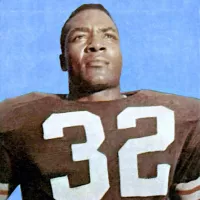
Jim Brown was a dominant NFL running back for the...
The Keystone Pipeline System commissioned in is an oil pipeline...
Trending
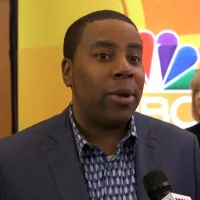
8 months ago Kenan Thompson Addresses Constant Confusion With Kel Mitchell, Good Sport About Fan Mix-Ups

Rob Zombie born Robert Bartleh Cummings is a multifaceted American artist recognized as a singer songwriter filmmaker and actor He...

1 month ago Jonathan Kuminga Trade Rumors: Warriors, Pacers Considering Deals for Forward.
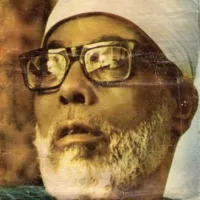
3 months ago Mahmoud Khalil faces deportation: DOJ challenges block, court voices doubt over Trump's bid.
The World Baseball Classic WBC is an international baseball tournament sanctioned by the World Baseball Softball Confederation WBSC and organized...
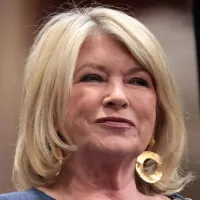
2 months ago Martha Stewart's Holiday Collection Returns for 2025: Decor and Dining Favorites!
Popular
Curt Cignetti is an American college football coach currently the...

Carson Beck is an American college football quarterback currently playing...

XXXTentacion born Jahseh Dwayne Ricardo Onfroy was a controversial yet...

William Franklin Graham III commonly known as Franklin Graham is...
WWE Raw a professional wrestling television program by WWE airs...
Matt and Ross Duffer known as the Duffer Brothers are...
